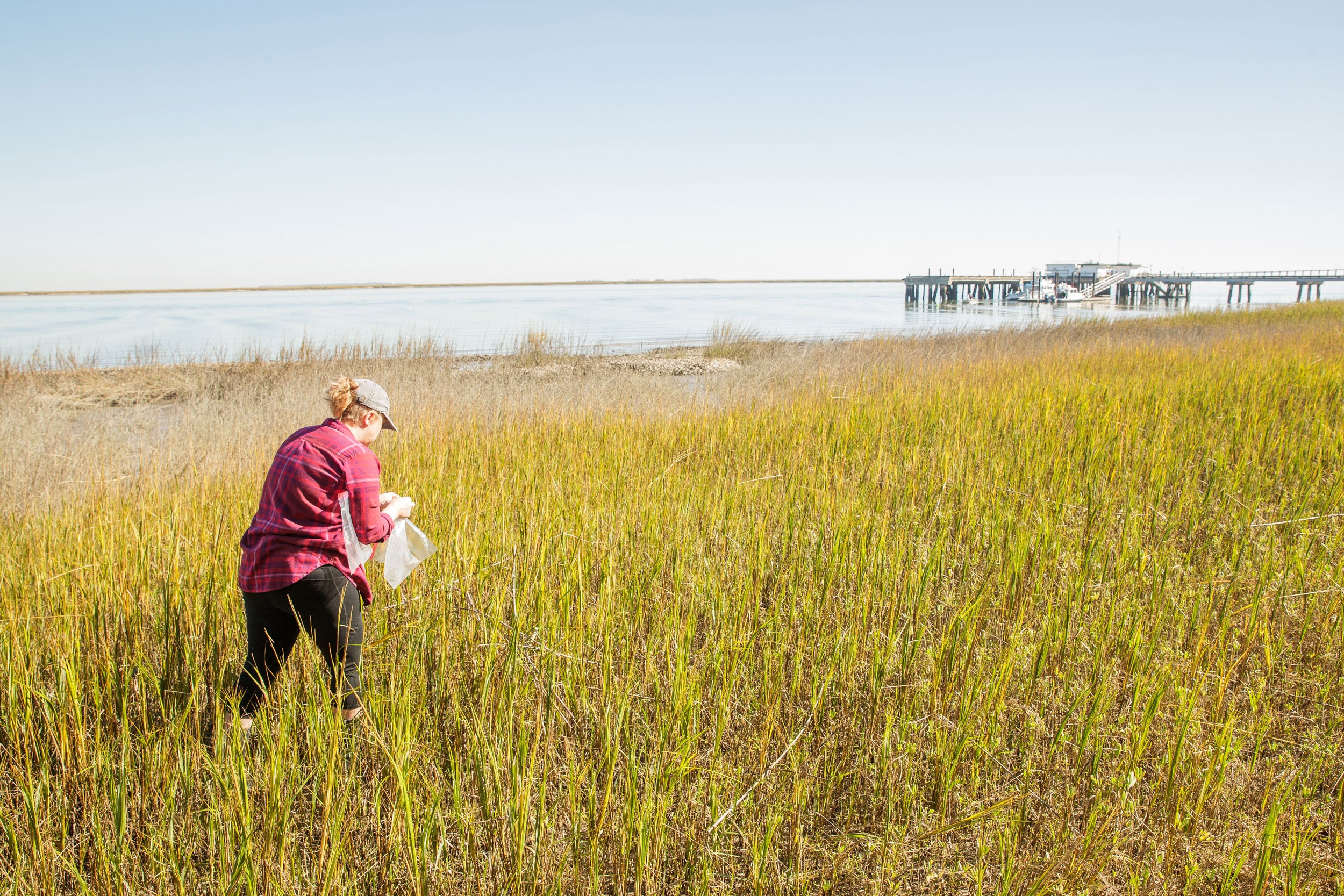Help communities and organizations navigate environmental challenges to secure a more sustainable future.
Locations
- Statesboro Campus (In Person)
- Armstrong Campus (In Person)
Why Earn a Master’s in Environmental Science at Georgia Southern?
- Make a difference now as you contribute to the work of the Institute for Coastal Plain Science.
- Gain hands-on, real-world experience by completing a required internship/research project.
- Access a wide range of natural laboratories — forests, beaches, salt marshes, rivers and more — along southeast Georgia’s Coastal Plain.
- Complete as a standalone or 4+1 program by starting graduate-level courses as you finish your bachelor’s degree.
- Benefit from an interdisciplinary curriculum with coursework across the College of Science and Mathematics.
- 36 credit hours to completion.
Emphasizing rigorous, practically focused training, Georgia Southern University’s M.S. in Environmental Science program stresses a broad foundation that prepares you to take a multifaceted approach to environmental challenges. Explore the science behind sustainability and natural resource conservation — the program’s flexible format draws from the strengths of multiple disciplines and allows you to tailor your studies to your professional goals.
Among the diverse and unique ecosystems of Georgia’s Coastal Plain, you’ll join active faculty-scholars performing cutting-edge research designed to preserve the environmental vitality of the Southeast and beyond. Through internships, research projects and expert mentoring, you’ll gain the tools and confidence to protect our natural world and continue your studies at the Ph.D. level.
Ready to Apply?
What Can You Do With a Master’s in Environmental Science?
Communities and businesses are becoming more attuned to the environmental impacts of human activities. In response, the demand for scientists trained in fields focused on sustainability and environmental science is rising steadily. Your broad knowledge, sharpened analytical abilities and hands-on research experience will open doors for you in industry, government, nonprofits and education.
Where our graduates work:
- Colleges and universities
- Environmental consulting firms
- K-12 schools
- Local, state and federal government agencies
- Natural resource conservation
- Nonprofit organizations
- Research and industry laboratories
- Wildlife conservation
What our graduates do:
- Climate change analyst
- Environmental chemist
- Environmental restoration planner
- Environmental technician
- Industrial ecologist
- Wildlife biologist
What You’ll Learn
The master’s in environmental science program begins with an interdisciplinary overview of the field, including ongoing scientific, anthropological, technological and political aspects. Along with exposure to core natural and physical science concepts, you’ll strengthen your science communication and statistics skills in preparation for advanced roles.
Then, you’ll design a custom curriculum in consultation with your advisor to match your interests and career goals, drawing from courses in biology, chemistry, geology, public health and more. Extending your learning beyond the classroom, you’ll complete an additional six credit hours through an internship or capstone research project related to your desired path after graduation.
See the CurriculumBuild Your Experience
Acquire career-shaping experiences in the abundant natural laboratories of Georgia’s coastal region. Here, you’ll gain an understanding of the interconnectedness of intricate and unique ecosystems and how we can sustainably manage our natural resources in a changing world.
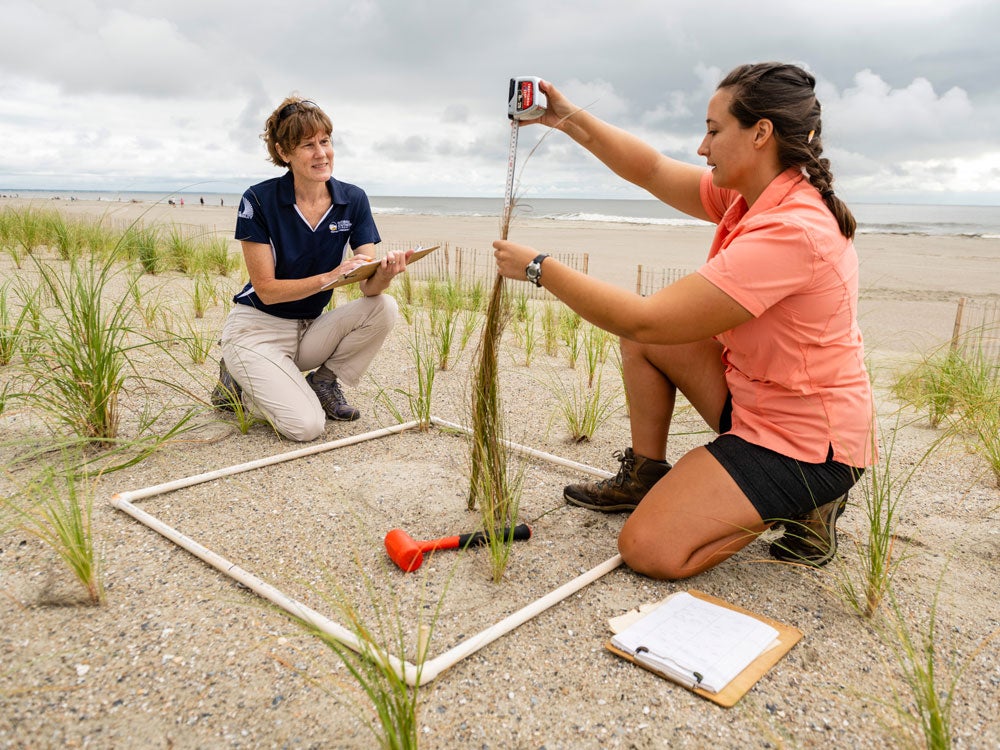
Research
Develop hands-on laboratory and field research skills as you collaborate with program faculty on projects focused on the sustainable management of local and regional ecosystems or other areas of interest.
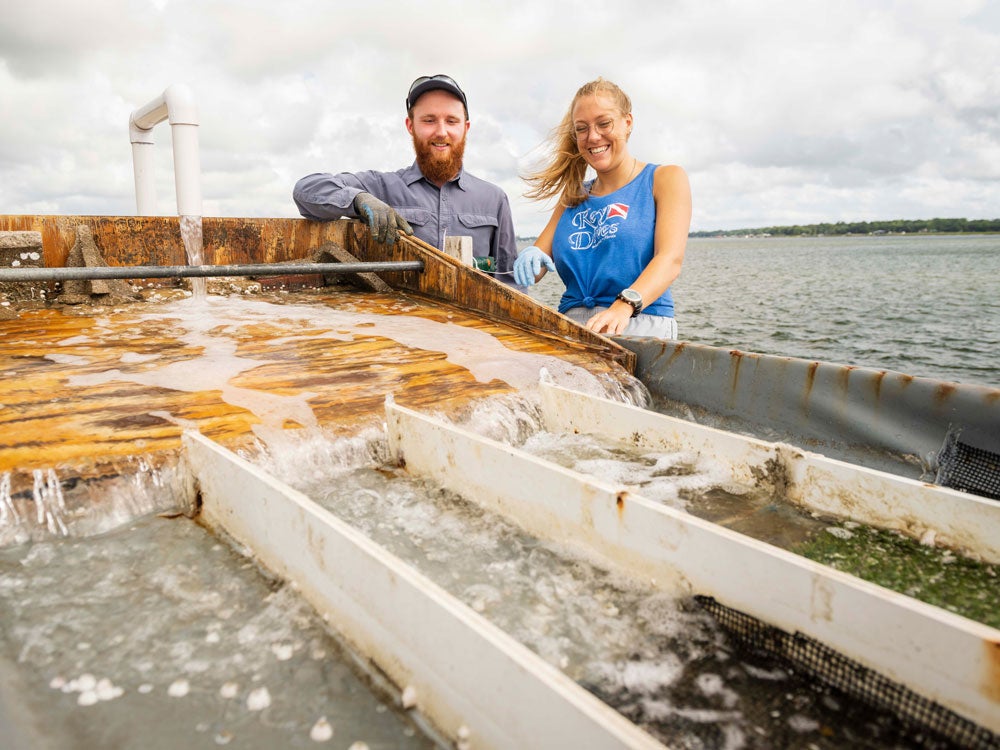
Internship
Apply skills and knowledge developed through your coursework to a current environmental challenge while working in a professional setting selected to align with your career direction.
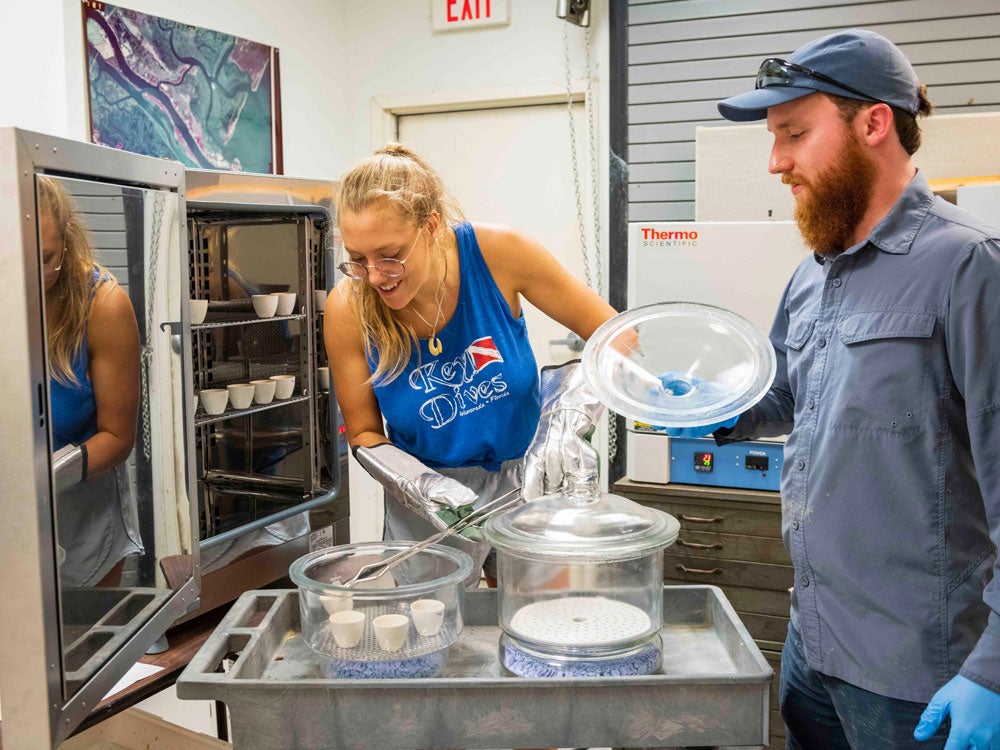
James H. Oliver, Jr., Institute for Coastal Plain Science
Throughout the program, you’ll work closely with the Institute for Coastal Plain Science, an interdisciplinary research and education center dedicated to fostering sustainable growth along Georgia’s Coastal Plain.
Want to Learn More?
Explore essential information about our M.S. in Environmental Science program, including application details, accreditation status, and licensing disclosures. Gain insight into the program’s credibility and requirements to help you start your journey toward success with the knowledge you need.
Applicants for the M.S. in Environmental Science program must hold a bachelor’s degree in a natural science discipline from a regionally accredited institution with a minimum cumulative GPA of 3.25 (on a 4.0 scale) for coursework within their major.
To apply, please submit:
- An online application. (There is a $50 nonrefundable application fee.)
- Two letters of recommendation from individuals familiar with your potential to complete successful graduate work.
- A statement of purpose explaining why you are interested in the program, describing your relevant research experience and outlining your future plans.
All supporting materials are submitted online to the Office of Graduate Admissions at gradadmissions@georgiasouthern.edu.
International transcripts must be evaluated by a NACES-accredited evaluation service. The evaluation must be course-by-course and include a GPA.
Application Deadlines
Students are admitted to begin in the fall and spring terms. The deadlines are as follows:
Fall – April 1
Spring – November 15
Your application and all required documents must be received by the deadline.
Contact Information
Associate Professor Christine Hladik
Graduate Program Director
chladik@georgiasouthern.edu
The accelerated bachelor’s to master’s (ABM) program in environmental science allows high-achieving students to complete both their B.S. and M.S. in five years — one year earlier than if the degrees were completed separately, saving both time and money. Students are accepted into the pathway no earlier than the first semester of their junior year.
About ABM Pathways at Georgia SouthernFaculty Feature
Study with expert faculty advancing the field. Assistant Professor Tyler Cyronak, Principal Investigator of the Coastal Carbon Laboratory, leads a team using state-of-the-art technology to explore the impact of climate change on the global carbon cycle.
Learn More About Assistant Professor Cyronak's WorkRelated Programs
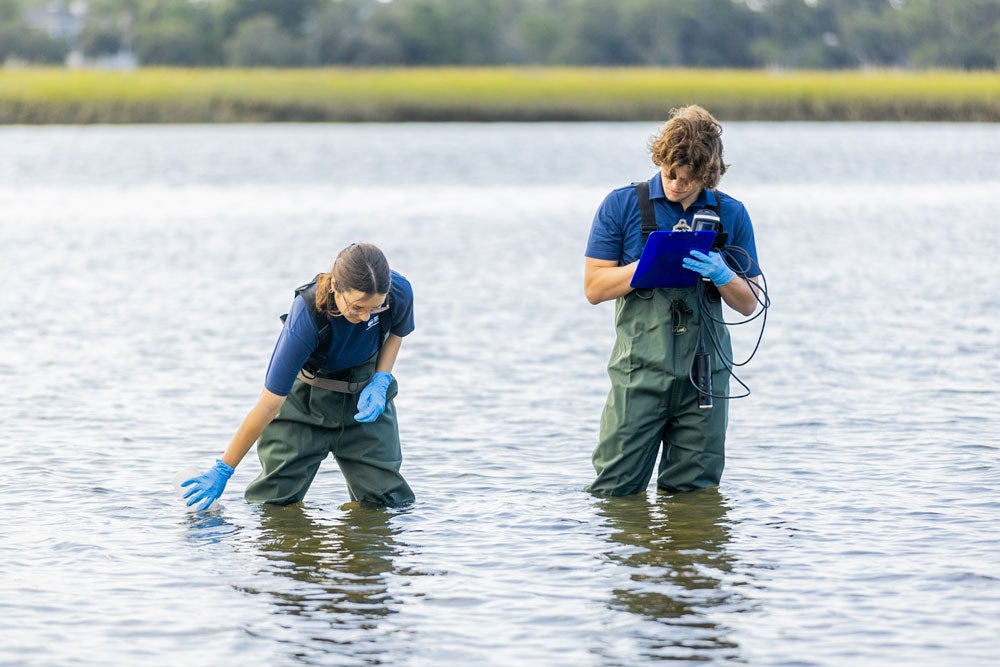
Take the Next Step
Address the 21st century’s environmental challenges with the interdisciplinary, results-based focus of Georgia Southern’s master’s in environmental science program.
Contact Us
School of Earth, Environment and Sustainability
Graduate Program Director
Christine Hladik, PhD
Phone: 912-478-5361
chladik@georgiasouthern.edu

